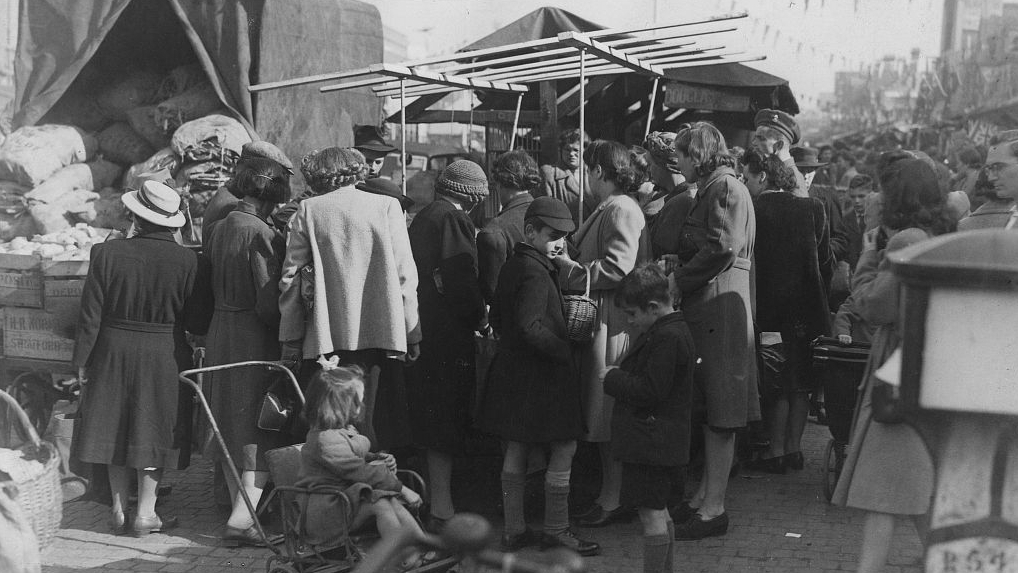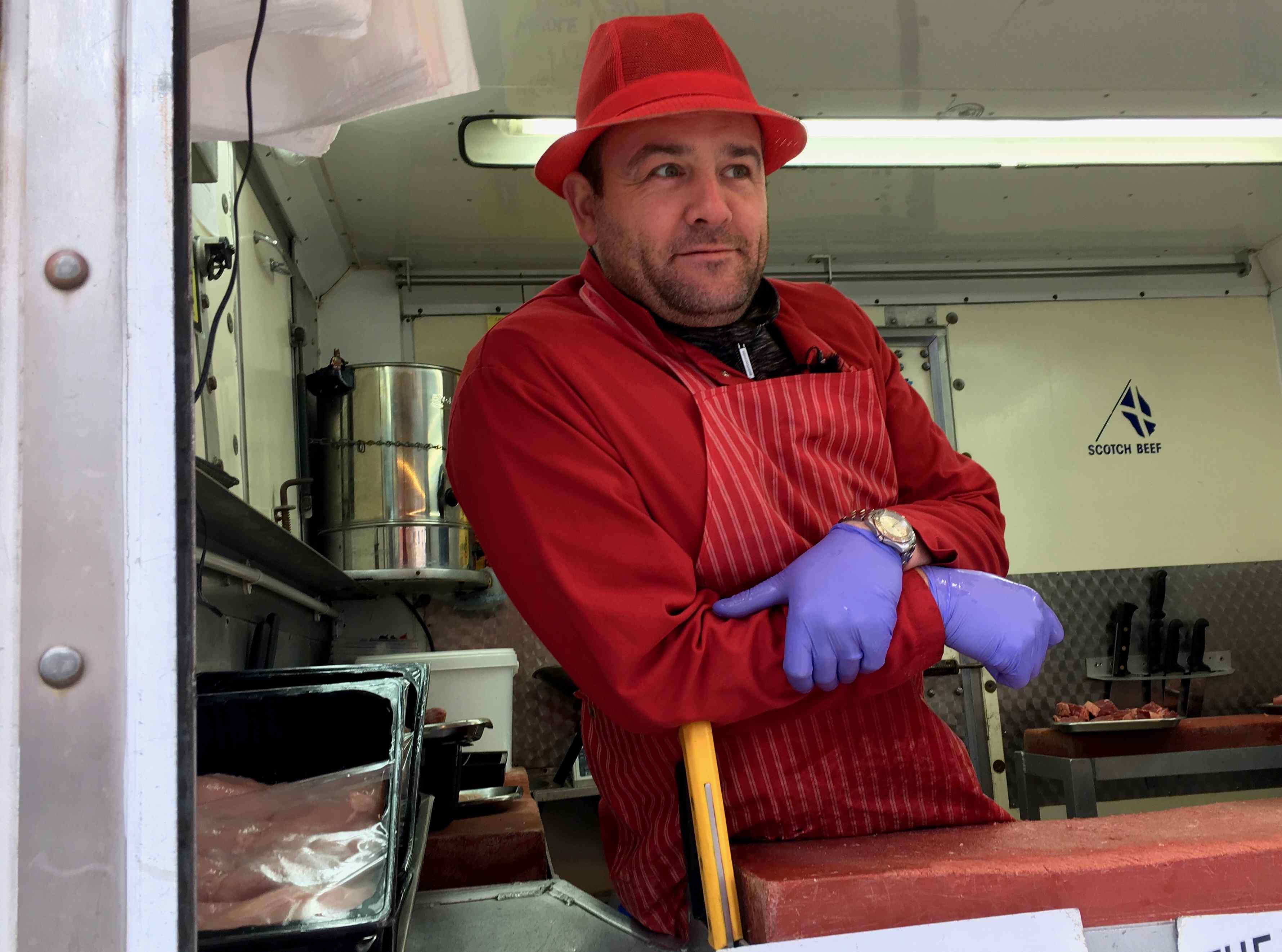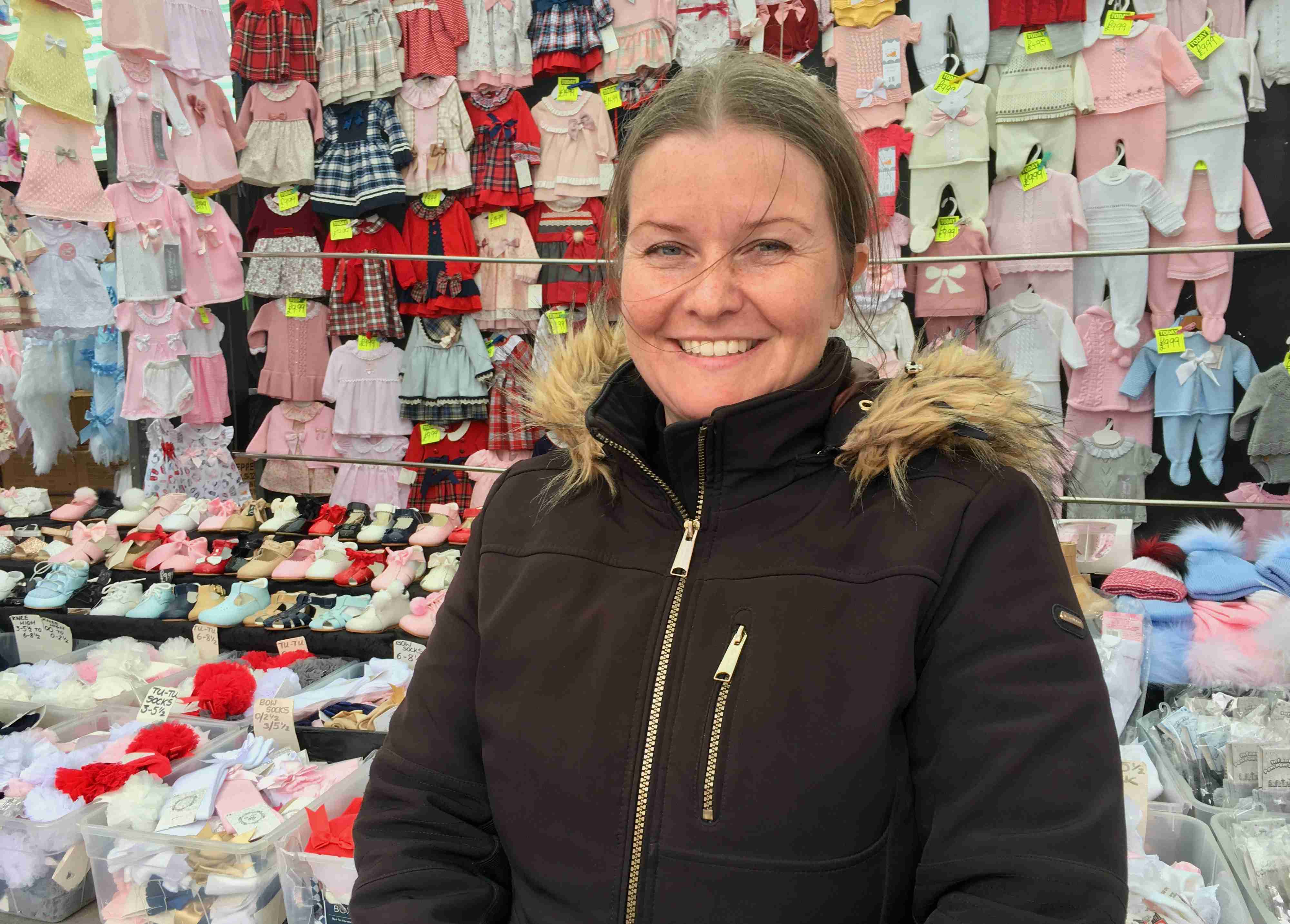
Europe
15:02, 11-Mar-2019
Ahead crucial Parliamentary vote, even pro-leave towns are divided
Kitty Logan

Steve Wickenden stands out at Romford market. Wearing a bright red butchers hat and matching jacket, he jokes with people who are queuing at his stall to buy meat at bargain prices. His family has been running the business for more than 30 years.
But no one yet knows what the future will hold for small traders like Steve, if Britain leaves the EU on March 29 as scheduled, or even what the final outcome of Brexit might be. The ongoing uncertainty is no laughing matter for Steve.
"I think it doesn't just affect us in the market. It affects everybody," he says. "It's the fear of the unknown. People are holding their money back and they're frightened of spending it, in case there's a recession."
But despite those fears, Steve stands by his vote for Britain to leave the EU. He is just as convinced about Brexit now as he was at the time of the June 2016 referendum.
"I'd still vote out again, if we had the option of another vote," he says. "They need to just leave. The country's voted. They need to get on with it, do a good deal. Get the whole border in Ireland sorted out."

Steve Wickendon. / CGTN Photo
Steve Wickendon. / CGTN Photo
The Irish border is proving to be the key sticking point to pass Prime Minister Theresa May's Brexit deal through Parliament. But the last-ditch negotiations in the corridors of the EU in Brussels and political deadlock in Parliament at Westminster are a far cry from the traditional traders in Romford.
This predominantly working-class town, just 23 kilometers east of London, boasts one of the oldest markets in the country, dating back centuries. Market Street is grey and windswept on this chilly March morning, as traders offer up everything from cheap fruit and vegetables to cut-price clothing.
The sparse crowd of shoppers are mostly pensioners, a demographic which helped swing the vote to leave the EU.
But Romford market also caters to the young. Next to the butchers' stall, Caron Webb sells baby clothing. She also backs Brexit.
"I think we've got to support Theresa May," she says. "At the end of the day, I can't see anyone else stepping up to the plate and saying what she's putting forward for us. We voted out, we've got to stick with that and stick with what she's saying."
Despite economic warnings, Caron does not believe Brexit will have a negative impact on her business. "Personally, I don't think it will affect me as an individual," she says. "I will still go to work. My customers will still come to me. We're capable of making our own deals. I go to France. I go to Spain. I strike my own deals. And I'm sure they will still strike the deals with me."

Caron Webb. / CGTN Photo
Caron Webb. / CGTN Photo
Caron's views are not unusual in Romford, where around two thirds of the electorate also voted to leave. But not everyone in the town agrees with her.
An elderly lady, who did not wish to be named, stops me on the street and whispers that she voted remain.
"Not all of us here wanted Brexit," she says. "Talk to the young people."
Across Britain, a majority 71 percent of 18 to 24-year-olds voted to remain and Romford also reflects that division between the generations. We meet a young woman in her twenties pushing a baby stroller down the nearby high street, alongside a female friend of a similar age.
"I think there should be a second referendum, I really do," her friend says. "And I think people should understand a lot more what we could lose as a country if we leave the EU."
Despite the overwhelming vote to leave, in Romford the divisions between leave and remain is still apparent, especially across the generation gap. And whatever is decided in Parliament in the coming days, not all in this town will be satisfied with the outcome.
(Cover image: Shoppers around a stall at Romford Market, London, September 29, 1945. / VCG Photo)

SITEMAP
Copyright © 2018 CGTN. Beijing ICP prepared NO.16065310-3
Copyright © 2018 CGTN. Beijing ICP prepared NO.16065310-3